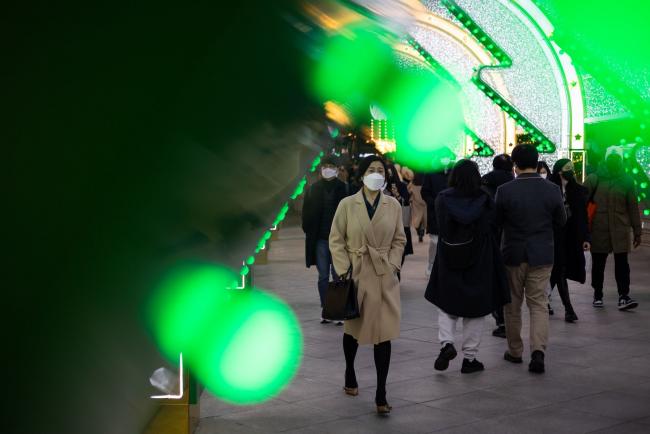(Bloomberg) -- South Korea’s inflation topped 3% for a third straight month in December, as still-high commodity prices, ongoing supply issues and resilient domestic demand all worked to lift consumer prices.
Consumer prices rose 3.7% from a year earlier, far exceeding the Bank of Korea’s 2% target, data from Statistics Korea showed Friday. The reading matched economists’ estimate for a 3.7% gain.
Policy makers have been ramping up their caution over quickening inflation in recent months after a global acceleration in price growth reached Korea.
The central bank sees a risk of stronger-than-forecast price pressures amid prolonged supply bottlenecks and a recovery in demand. Both the government and the central bank expect inflation to hover above the target well into next year.
Friday’s report shows consumer prices remained strong even as a government fuel tax cut came into effect and virus restrictions were tightened again to stem a surge in infections.
The figures also reflect the latest changes to the consumer price index basket and base year.
The statistics office last week adjusted the base year for the index to 2020 from 2015, and revised the basket to add 14 new items including masks and clothes dryers while removing 13, including school uniforms and cameras.
The revision raised average inflation through January to November to 2.4% from 2.3% previously.
Inflation will be a key consideration as the BOK board mulls when to raise interest rates again. Having hiked twice since August this year, Governor Lee Ju-yeol has indicated further hikes are on the table but has remained vague on the timing. The board next reviews rates on Jan. 14.
From a month earlier, consumer prices rose 0.2%.
Core inflation excluding agriculture and oil prices was 2.7% from a year earlier.
©2021 Bloomberg L.P.
